(23 doctors)

Dr. Anuradha V
Dentist
30 Years • BDS, MDS (Oral & Maxillo Facial Surgery )
Bengaluru
Comprehensive Dental & Implant Centre, Bengaluru

Dr. Vidya K B
Paediatric Dentist
12 Years • BDS, MDS Pedodontics and Preventive Dentistry
Bengaluru
Chiranjeevi health care, Bengaluru
Dr. Aishwarya Gudihal
Dentist
8 Years • BDS MDS PEDO
Bengaluru
Apollo Clinic, HSR Layout, Bengaluru

Dr Aakanksha Sharma
Dentist
6 Years • BDS
Bengaluru
Apollo Clinic, JP nagar, Bengaluru

Dr. Ritu Budhwani
Dentist
21 Years • BDS, PGC Cosmetic Dentistry
Pune
Apollo Clinic, Viman Nagar, Pune

Dr Shubham Shekhar
Paediatric Dentist
10 Years • BDS MDS
Lucknow
Apollo Clinic Hazratganj, Lucknow

Dr Stephanie Rachel Dsouza
neonatologist
7 Years • MBBS, MD Peadiatrics
Bangalore
Apollo Clinic Bellandur, Bangalore
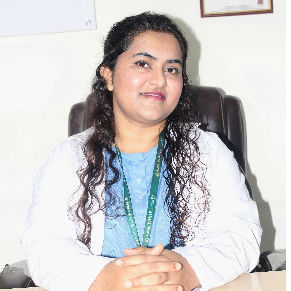
Dr. Akshatha
Dentist
9 Years • BDS
Bengaluru
Apollo Sugar Clinics, Padmanabh Nagar, Bengaluru
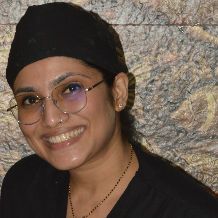
Dr Komal R Ganani
Paediatric Dentist
8 Years • Pediatric Dentist - BDS, MDS Practices exclusive Pediatrics Dentistry treating kids from 6 months to 14 years of age
Mumbai
Apollo Hospitals CBD Belapur, Mumbai
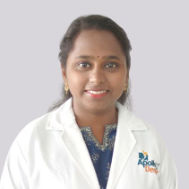
Dr.madhu Vanya
Orthodontist
12 Years • MDS - Master of Dental Surgery
Bengaluru
Apollo Dental Stand Alone, Harlur, Bengaluru
Dr. Richa Jain
Dentist
15 Years • BDS, MDS
Bhopal
Apollo Sage Hospitals, Bhopal
Ramya
Dentist
23 Years • Bachelor of Dental Surgery
Bengaluru
Apollo Dental Sarjapur, Bengaluru
Dr. Neethi Menon
Paediatric Dentist
7 Years • MDS
Chennai
Apollo Dental Anna Nagar, Chennai
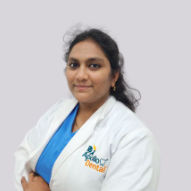
Dr. Vasavi Pallapoiu
Dentist
8 Years • Bachelor of Dental Surgery
Bengaluru
Apollo Dental Stand Alone, Harlur, Bengaluru
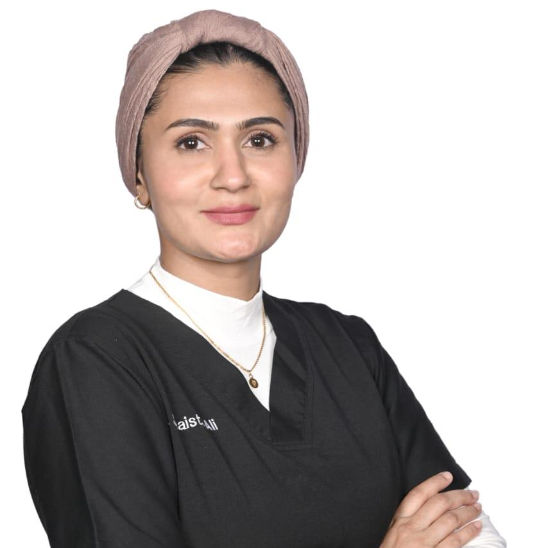
Dr. Shaista Ali
Paediatric Dentist
13 Years • BDS, FDS- Pedo, MBA
Chennai
Apollo Dental KNK, Chennai
Paediatric Dentistry
Booking an appointment with a paediatric dentist at Apollo 24|7 is a breeze. With just a few clicks online or a quick phone call, you can secure a convenient time slot that fits your schedule. Apollo 24|7 offers access to top-notch paediatric dentists at trusted hospitals and clinics, ensuring your child receives the best possible dental care. Our experienced specialists are dedicated to creating a comfortable and kid-friendly environment, making dental visits a positive experience for your little one. Don't wait – book your appointment with a skilled paediatric dentist today and give your child the gift of a healthy smile.
What is Paediatric Dentistry?
Paediatric dentistry is a specific branch of dentistry that focuses on the oral health of children from infancy through adolescence. This speciality encompasses a broad range of care, including the management of healthy development of children's teeth, gums, and mouth. It ensures that children grow up with strong, healthy smiles by addressing potential dental issues early on.
The relevance of paediatric dentistry lies in its preventive approach—educating parents and children on how to avoid common dental problems, such as cavities and gum disease, through proper hygiene and nutritional habits. Additionally, paediatric dentists play a critical role in the early detection and treatment of oral conditions that may affect overall health and development.
Who is a Paediatric Dentist?
A paediatric dentist is a specialist trained to provide comprehensive oral health care for children from infancy through their teenage years. To qualify as a paediatric dentist, an individual must complete a dental degree followed by additional postgraduate training in paediatric dentistry, which focuses on areas specific to children’s unique dental needs.
These professionals are adept at handling various dental conditions specific to younger patients, such as developmental difficulties of the teeth, dental caries, and alignment issues. Moreover, paediatric dentists are skilled in managing the behavioural aspects of children to make dental visits less stressful.
Their expertise also includes caring for children with special needs, ensuring they receive the best possible dental care in a comfortable and accommodating environment.
What Does a Paediatric Dentist Do?
A paediatric dentist specialises in the oral healthcare of children from infancy through the teenage years. They play a crucial role in ensuring the dental wellbeing of young patients through various responsibilities and daily activities.
Preventive Dental Care: One of the primary duties of a paediatric dentist is to implement preventive dental measures to help avoid cavities, gum diseases, and other oral health issues. This includes professional cleanings, fluoride treatments, and the application of dental sealants to protect young teeth.
Routine Examinations: Regular check-ups allow paediatric dentists to monitor the growth and development of jaws and teeth, spotting potential problems before they become severe. These exams often include digital X-rays and computer modelling to predict future dental issues.
Management of Oral Health Conditions: Paediatric dentists diagnose and treat various dental conditions in children, such as tooth decay, overbites, underbites, and misaligned teeth. They are skilled in procedures ranging from simple extractions to complex surgical interventions.
Parent and Child Education: Educating both parents and children about proper brushing techniques, flossing, and overall oral hygiene is a fundamental aspect of their role. They provide guidance on diet and nutrition to support optimal dental health.
Emergency Care: They are equipped to handle dental emergencies, such as knocked-out teeth or jaw fractures, providing immediate care and long-term rehabilitation plans.
Special Needs Dentistry: Paediatric dentists are also trained to care for children with special needs, offering personalised and sensitive dental care to accommodate their unique requirements.
Through these activities, paediatric dentists ensure that children not only maintain healthy teeth and gums but also develop positive attitudes towards dental health that last a lifetime.
What are the Other Sub-specialities of Paediatric Dentistry?
Paediatric dentistry encompasses a range of sub-specialities that cater to various aspects of children's oral health. Each sub-speciality addresses specific needs and contributes to the comprehensive care of young patients.
Preventive Dentistry: This sub-speciality focuses on preventing dental issues before they develop. Preventive Dentistry includes regular exams, teeth cleaning, and fluoride treatments to prevent cavities. The approach also involves educating families about nutrition and oral hygiene practices that support healthy dental habits from an early age.
Paediatric Orthodontics: Concerned with correcting misalignments and bite problems, Paediatric Orthodontics helps ensure proper jaw development and alignment of teeth. This sub-speciality often uses braces and other corrective devices to adjust the child’s bite and improve their oral function.
Dental Trauma Management: This crucial area involves the immediate and long-term management of injuries to the teeth and mouth. Dental Trauma Management is essential in handling accidents such as knocked-out teeth or fractured jaws, common in active children.
Sedation Dentistry: Often, a child dentist employs sedation techniques to manage anxiety and pain during dental procedures. Sedation Dentistry ensures that children remain comfortable and stress-free, whether they are undergoing a routine cleaning or more invasive treatments.
Restorative Dentistry for Children: Specialising in repairing or restoring damaged teeth, Restorative Dentistry for Children includes treatments like fillings, crowns, and root canals specifically designed for young patients. This sub-speciality ensures that children’s teeth remain functional and aesthetically pleasing after decay or injury.
Infant Oral Health: This sub-speciality focuses on the youngest patients, providing care for infants from birth through their first years. Infant Oral Health involves assessments of an infant's mouth, advice on how to avoid baby bottle tooth decay, and guidance for teething and early tooth care.
Management of Dental Anomalies: Dealing with unusual dental developments such as supernumerary (extra) teeth or congenitally missing teeth, this area addresses the unique challenges presented by these conditions. Specialists in Management of Dental Anomalies work to correct or manage these issues effectively, ensuring that they do not hinder a child’s dental development.
Each of these sub-specialities plays a vital role in ensuring comprehensive dental care from an early age, addressing everything from doctor for cavities in kids to doctor for gums problems in children, thereby safeguarding the oral health of young ones through their formative years.
What are the Paediatric Dentistry Examinations or Tests Performed by the Paediatric Dentist?
Paediatric dentists perform a variety of examinations and tests to assess and manage the oral health of their young patients. These diagnostic procedures are crucial for early detection and treatment of dental issues.
Initial Oral Examination: The first visit to a children's tooth doctor often involves a thorough oral examination. This includes checking all teeth, the jaws, bite, gums, and oral tissues to assess growth and development and detect any potential issues such as cavities or early signs of orthodontic concerns.
X-Rays (Radiographs): Dental X-rays are essential for viewing the structure of the jaw, position of teeth, and to detect hidden dental decay. Radiographs help the paediatric dentist monitor tooth growth and development, identify abnormalities, and plan treatments that cannot be determined only by a clinical examination.
Teeth Cleaning: This preventive measure involves removing plaque and tartar build-up on children’s teeth. Regular cleaning helps prevent dental problems such as cavities and gum diseases and also provides an opportunity to teach children effective dental hygiene practices.
Fluoride Treatments: Fluoride applications are a common preventative treatment to strengthen the enamel on children's teeth, making them more resistant to decay. These treatments are particularly important for children who are at high risk of dental caries.
Caries Risk Assessment: Based on an examination of the child’s teeth, diet, and oral hygiene habits, paediatric dentists evaluate the risk of developing cavities. This assessment guides the frequency of visits and preventive measures.
Orthodontic Assessment: As children grow, their need for orthodontic treatment is evaluated. This involves examining the alignment of teeth and jaws to predict if future orthodontic treatment might be necessary.
These tests and examinations are part of the comprehensive care provided by paediatric dentists, helping ensure that children maintain optimal oral health. Parents looking to book paediatric dentist appointments can expect these types of diagnostic and preventive services to be offered during their child's dental visits.
What are the Common Conditions & Diseases that Paediatric Dentists Treat?
Paediatric dentists specialise in treating a variety of dental conditions that affect children. Here are the top 15 conditions they commonly manage:
Dental Caries (Cavities): Decay in the tooth structures caused by bacteria that break down sugar in foods and produce acids that harm the enamel.
Gingivitis: Inflammation of the gum tissue around the teeth, often characterised by swelling, redness, and bleeding.
Orthodontic Problems: Misaligned teeth and jaws, which may require braces or other corrective procedures.
Dental Erosion: Loss of tooth enamel due to exposure to acids from foods and beverages.
Tooth Impactions: Teeth that are blocked from breaking through the gum, often requiring surgical intervention.
Thumb Sucking Issues: Prolonged thumb sucking that affects the dental arch and tooth positioning.
Tooth Discoloration: Staining of teeth due to medication, poor oral hygiene, or consumption of certain foods.
Tooth Sensitivity: Discomfort or pain in teeth when exposed to hot, cold, or sweet stimuli.
Molar-Incisor Hypomineralisation (MIH): A condition where the enamel of first molars and incisors is weak and more susceptible to decay.
Habitual Grinding (Bruxism): Grinding or clenching of teeth, usually due to stress or misalignment, which can wear down tooth enamel.
Periodontal Disease: Advanced gum disease involving the destruction of the supporting tissue and bone around teeth.
Dental Abscesses: Infections at the root of the tooth or between the gum and a tooth.
Premature Tooth Loss: Early loss of baby teeth due to decay or injury, which can affect the alignment of permanent teeth.
Oral Ulcers: Sores in the mouth that can be caused by viral infections or local trauma.
Ankyloglossia (Tongue-Tie): A condition where a short, tight tissue tethers the bottom of the tongue's tip to the floor of the mouth, affecting speech and eating.
These conditions highlight the broad scope of issues paediatric dentists address, focusing on preventive care and effective treatment to ensure healthy dental development in children.
Reasons to See a Paediatric Dentist
Consulting a paediatric dentist is essential for maintaining a child's oral health. Here are key reasons to seek their expertise:
Early Detection: Regular check-ups help identify issues like cavities or developmental anomalies early on, preventing more complex problems later.
Preventive Care: Paediatric dentists provide fluoride treatments and dental sealants to protect against decay.
Specialised Knowledge: Their training in child-specific conditions means they can effectively manage oral health at every stage of childhood.
Guidance on Oral Habits: Advice on thumb sucking, bottle feeding, and transitioning to cups that can affect dental health.
Management of Dental Fear: They are skilled in easing dental anxieties, making visits less stressful for both children and parents.
Emergency Care: Immediate treatment for dental injuries like knocked-out teeth or fractures is crucial.
For busy families, an online paediatric dentist consultation can provide initial assessments and guidance without the need for an in-office visit.
What Types of Procedures do Paediatric Dentists Perform?
Paediatric dentists are equipped to perform a variety of procedures that ensure the dental health of children. These can be broadly categorised into top therapies and surgeries.
Top Therapies
Preventive Cleaning: Regular cleanings to remove plaque and prevent decay.
Fluoride Treatments: Application of fluoride to strengthen enamel and ward off cavities.
Dental Sealants: Application of a protective coating on the chewing surfaces of back teeth to prevent decay.
Oral Hygiene Education: Teaching children and parents proper brushing and flossing techniques.
Nutrition Counseling: Providing guidance on foods that affect oral health positively or negatively.
Habit Counseling: Assistance with cessation of thumb sucking and pacifier use.
Night Guards: Fabrication of custom guards to prevent night-time teeth grinding.
Top Surgeries
Tooth Extractions: Removal of decayed or damaged teeth or for orthodontic reasons.
Pulp Therapy: Treatment of the pulp tissue caused by infection or trauma.
Space Maintainers: Installation of appliances to maintain space for permanent teeth after premature tooth loss.
Orthodontic Adjustments: Minor adjustments or emergency care related to braces.
Frenectomies: Removal or adjustment of the frenulum to correct tongue-tie or lip-tie, which can interfere with speech and eating.
Emergency Repair: Management and repair of dental injuries, such as fractured or knocked-out teeth.
Sedation Dentistry: Use of medication to help relax anxious patients during extensive procedures.
Consulting with a paediatric dentist can provide insight into the necessary treatments and associated paediatric dentist fee for maintaining the oral health of your child. These professionals are trained to offer a compassionate approach tailored to the needs of children, ensuring a positive and reassuring experience.
Why Choose an Apollo 24|7 Paediatric Dentist?
Apollo 24|7 paediatric dentists are highly skilled and experienced in providing comprehensive dental care for children of all ages. Our team of specialists undergoes rigorous training and stays up-to-date with the latest advancements in paediatric dentistry, ensuring that your child receives the best possible care.
We understand that every child is unique, which is why we offer personalised treatment plans tailored to their specific needs and preferences. Our child-friendly environment and gentle approach help put children at ease, making dental visits a positive experience.
At Apollo 24|7, we offer a wide range of advanced treatment options, from preventive care to complex surgical procedures, all under one roof. This ensures seamless access to the care your child needs, without the hassle of multiple referrals or visits to different clinics.
Our commitment to patient satisfaction and convenience extends to our online platform, where you can easily book appointments, consult with our paediatric dentists virtually, and access your child's dental records securely from anywhere, at any time.
What to Expect When Visiting a Paediatric Dentist?
Visiting a paediatric dentist is a crucial step in ensuring your child’s oral health. These visits are designed to be informative, supportive, and stress-free for both children and parents.
Warm Welcome: The clinic is often brightly decorated with child-friendly themes to create a welcoming atmosphere.
Initial Assessment: Comprehensive examination to assess oral health status and detect any early signs of dental issues.
Consultation: Discussion about dental hygiene, dietary habits, and any concerns you may have. The dentist will provide tailored advice based on the assessment.
Treatment Plan: If needed, a clear and detailed treatment plan will be formulated, outlining any necessary procedures or follow-ups.
Preventive Advice: Guidance on preventing dental problems through proper care and regular check-ups.
Engagement: Efforts to make the visit enjoyable and educational for the child, helping to alleviate any fears.
For those seeking care, searching for a paediatric dentist near me can lead to local specialists with positive paediatric dentist reviews, ensuring you find a trusted and highly recommended professional.
How Can I Get an Appointment With a Paediatric Dentist?
Booking an appointment with an Apollo 24|7 paediatric dentist is quick and convenient, with both online and offline options available to suit your preferences.
Online booking through the website: Visit the Apollo 24|7 website and navigate to the 'Book Appointment' section. Select 'Paediatric Dentistry' from the list of specialities, choose your preferred location, and pick a date and time slot that works best for you. Fill in the necessary details and confirm your appointment.
Online booking through the mobile app: Download the Apollo 24|7 mobile app from the App Store or Google Play Store. Log in or create an account, then follow the same steps as mentioned above for website booking.
Offline booking via phone: Call the Apollo 24|7 helpline number and speak with a representative to schedule an appointment with a paediatric dentist at your nearest Apollo clinic or hospital.
Walk-in appointments: While prior booking is recommended, Apollo 24|7 also accommodates walk-in appointments subject to the availability of the paediatric dentist. Simply visit your nearest Apollo clinic or hospital and inquire at the reception about consulting with a paediatric dental specialist.
Paediatric Dentists in top cities
Related Treatments
Related Procedures
FAQs
What is paediatric dentistry?
Paediatric dentistry focuses on the oral health of children from infancy through adolescence. It involves diagnosis, prevention, management, and treatment of a child's dental issues, including their gums and mouth, ensuring healthy development and preventing future dental problems.
What is a paediatric dentist called?
A paediatric dentist is often referred to as a paedodontist. This specialist is trained to address the unique dental needs of children and adolescents, providing both preventative and therapeutic oral health care
What is the role of a paediatric dentist?
The role of a paediatric dentist is to provide comprehensive oral health care that helps children maintain healthy teeth and gums. They conduct dental health assessments, perform preventive dental care, manage gum diseases, and treat any dental problems that arise during childhood.
Why is paediatric dentistry important?
Paediatric dentistry is crucial because it focuses on preventive care, helping children avoid complex dental issues as they grow. Early dental visits teach good oral hygiene practices and help identify and treat problems like cavities or misalignment early, promoting lifelong dental health.
Are paediatric dentists different?
Yes, paediatric dentists are different from general dentists as they have specialised training in dealing with children’s dental issues. They are equipped to handle the behavioural aspects of children, make dental visits less frightening, and provide care tailored to children’s specific needs.
Do paediatric dentists do fillings?
Yes, paediatric dentists perform fillings regularly. They use fillings to repair tooth decay and prevent further damage. The materials and techniques are specifically chosen to be safe and durable for children’s teeth.
Do paediatric dentists extract teeth?
Yes, paediatric dentists extract teeth when necessary, such as when a tooth is severely decayed or affected by dental trauma, or to help manage orthodontic treatment plans by creating space for permanent teeth.
Is paediatric dentistry necessary?
Yes, paediatric dentistry is essential for maintaining children’s oral health. Regular visits to a paediatric dentist ensure that children’s teeth and gums are developing healthily and any potential issues are addressed promptly, thereby avoiding more serious problems in the future.
What is the difference between a child and an adult dentist?
The main difference between a child dentist and an adult dentist is the focus on age-specific dental issues. Child dentists, or paediatric dentists, are specially trained to manage the dental growth and developmental challenges specific to children, whereas adult dentists generally treat older adolescents and adults.
How do paediatric dentists remove pulp?
Paediatric dentists remove pulp through a procedure called pulpectomy, which involves removing diseased or infected pulp from a child’s tooth, cleaning the pulp chamber, and filling it with a material suitable for continued tooth development and function. This procedure is crucial in treating pulpitis or maintaining a tooth compromised by decay or trauma.